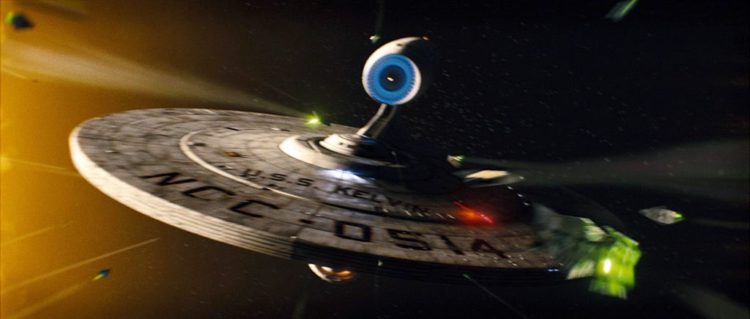
It is no secret that Star Trek is one of the most popular franchises in sci-fi history. It has captured the attention of several generations worth of geeks by now. The original William Shatner-led series broke boundaries back in the 60s with its multicultural cast of characters, in addition to speculating on the future that might await humanity beyond this ball of mud we call home. The 90s saw a resurgence in popularity for the franchise, with a king’s ransom worth of fine sci-fi resulting. The Next Generation, Deep Space Nine, Voyager, Enterprise: the Star Trek flag was flying high back then, and has left an abundant amount of media for later generations to consume. But all good things must come to an end, and four long-running series over the course of almost twenty years left many fans a little burned out. Viewing figures dropped, tickets did not sell as well as they once had, and Star Trek was put on the back burner for a while.
A revival was inevitable, of course. It is Star Trek we are talking about. The choice of how to continue the tale, however, has left fans divided ever since. Instead of building on what went before, the creators of the new Trek decided to scrap all the history and developments of past series and create an entirely new timeline. The original crew were recast, and sent out to re-enact past adventures. Or, a new version of those past adventures, at least. Invariably, the tales told in this new timelines–the Kelvin Timeline, as it has come to be known–are more bombastic and action-packed than those that went before. This can be a good thing, in some ways. Action is exciting. A good adrenaline rush for the audience, an easy way to advance the story for the writers. But it can be a bad thing, in other ways.
Star Trek was never an action series, you see. Few, if any, tuned in to see some fight scenes. It was always thoughtful, even at its silliest, and some of the episodes that dealt with more serious issues were downright Shakespearean. Take for example this scene from The Next Generation, featuring a professional disagreement between Worf and Data. We see Worf unwittingly undermine Data’s command. We see Data calmly take him aside to discuss the matter. He takes a firm stance, but does not rant at Worf or seek to belittle him. And Worf, rather than getting angry and defensive over the criticism, considers the issue maturely and realises his error. Apologies are exchanged and the two part on good terms, arguably better terms than they had before. The maturity of it! An adventuresome sci-fi series–a silly one, some might say. Yet what we see here is as good an example of how to deal with a conflict at work as you are ever likely to find, on the parts of both characters.
There are few such examples to be found in the stories being produced as part of the Kelvin Timeline, unfortunately. Star Trek has changed. Now, it is far more likely that such a conflict would be settled with fists flying, and curses being exchanged. Lots of curses. Everyone curses now, in Star Trek. They never used to. In and of itself that would be no big deal, but it is indicative of the lack of maturity that has characterized these recent tales. Gone is the vision of an advanced human civilization, one that has set aside the prejudices and wants of the past to embrace an enlightened era of peaceful exploration. In its place are fight scenes, curses, prejudice of all kinds. A humanity that has not advanced at all, in other words. It’s a shame.
Those fight scenes might distract on occasion from the number of plot holes that the Kelvin Timeline has. That might even be part of why there are so many of them. But sooner or later viewers must pause to consider what has happened, and rarely does the plot hold up to scrutiny. In the new version of Wrath of Khan, for example, the writers decided to include a teleporter that could instantly send someone all the way from Earth to the Klingon homeworld. Neat idea. Makes it easier to move the plot along. But a few seconds of thought would have told them, as it tells the viewers, that such a technology just rendered space travel itself obsolete. Space travel! Obsolete! In a series called Star Trek. For the love of tribbles…
The Kelvin Timeline is rife with such things. It is a new Trek for a new generation. And the studios catering to that generation seem to think that a fast and bombastic story with little thought behind it is what they want. Given the poor sales figures for the new movies, and the plummeting viewership of the Discovery series, it could be said that the studios are suffering from, as one dignified and experience Star Fleet Admiral famously said in the new Picard series, “sheer fucking hubris”.
 Follow Us
Follow Us





